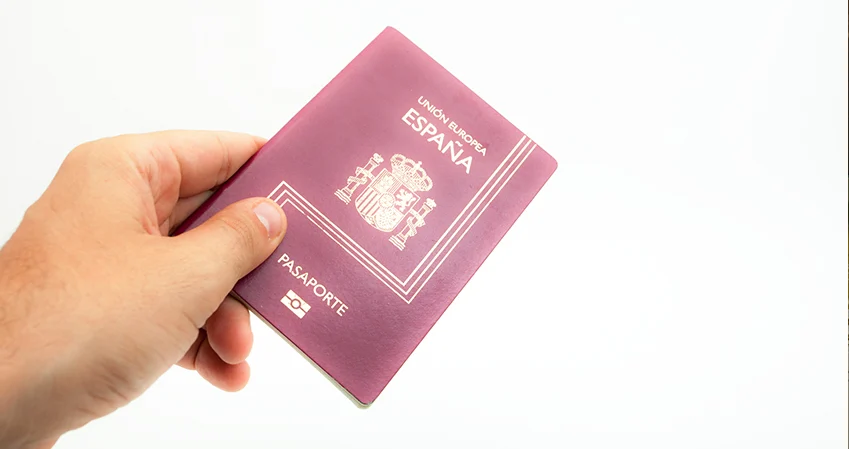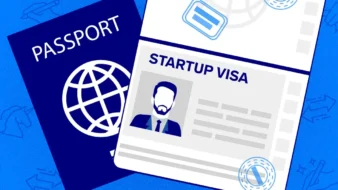Turnkey relocation to Spain from 6 weeks
We will help you to obtain a Spanish residence permit for the whole family with a minimum tax burden!
Read more
Get a free consultation
From 0 €
Tax burden per month
From 6 weeks
Term for obtaining a residence permit
5 years
Until permanent residence permit


When You Can Obtain Permanent Residency with a Start-Up Visa

Applicants with experience and qualifications as co-founders can apply by submitting an application, a valid passport, proof of legal residence in Spain, a clean criminal record, full health insurance, and sufficient financial means for living in the country. New projects benefit from tax incentives: instead of the standard 25% corporate tax, they pay 15% and are granted a deferral of corporate tax payments for six months to one year. This type of visa is issued for up to one year, after which applicants must apply for a residence permit and later for permanent residency.
 Moving to Spain for permanent residency is possible through a start-up visa. Initially, applicants receive a residence permit allowing them to live and work in Spain for three years. It can then be extended for another two years, after which they may apply for permanent residency.
To obtain PR, the following are required:
Moving to Spain for permanent residency is possible through a start-up visa. Initially, applicants receive a residence permit allowing them to live and work in Spain for three years. It can then be extended for another two years, after which they may apply for permanent residency.
To obtain PR, the following are required:
 Meeting the requirements for permanent residency in Spain through a start-up visa allows you and your family to live not only in Spain but also travel freely within the Schengen Area. Applicants must demonstrate that their business idea is promising for the country. Residence permits are granted in most cases, with rejections being quite rare.
Obtaining PR allows you to live in Spain legally for an extended period, with renewals required every 5 years. The start-up visa is one of the most efficient legal pathways for residing in Spain. A PR holder gains access to the Spanish healthcare and social security systems, known for their high quality.
After 10 years of legal residence, one may apply for Spanish citizenship, which grants full civil rights, including voting and running for office. Importantly, the start-up visa does not require a functioning MVP at the beginning, nor does it demand an investment of €500,000 in real estate or securities.
Even if a start-up fails, the applicant can seek employment with another start-up or work for a company as an employee. Applicants must be at least 18 years old.
Meeting the requirements for permanent residency in Spain through a start-up visa allows you and your family to live not only in Spain but also travel freely within the Schengen Area. Applicants must demonstrate that their business idea is promising for the country. Residence permits are granted in most cases, with rejections being quite rare.
Obtaining PR allows you to live in Spain legally for an extended period, with renewals required every 5 years. The start-up visa is one of the most efficient legal pathways for residing in Spain. A PR holder gains access to the Spanish healthcare and social security systems, known for their high quality.
After 10 years of legal residence, one may apply for Spanish citizenship, which grants full civil rights, including voting and running for office. Importantly, the start-up visa does not require a functioning MVP at the beginning, nor does it demand an investment of €500,000 in real estate or securities.
Even if a start-up fails, the applicant can seek employment with another start-up or work for a company as an employee. Applicants must be at least 18 years old.
 To obtain permanent residency, it is crucial to maintain a successful and impactful business—merely opening a bakery or café is not enough. The venture must provide real benefits to Spain’s economy. This must be reflected in the business plan submitted to the Ministry.
To improve business performance:
To obtain permanent residency, it is crucial to maintain a successful and impactful business—merely opening a bakery or café is not enough. The venture must provide real benefits to Spain’s economy. This must be reflected in the business plan submitted to the Ministry.
To improve business performance:
Go back to the blog
Conditions and Requirements for Obtaining Permanent Residency through a Start-Up Visa
 Moving to Spain for permanent residency is possible through a start-up visa. Initially, applicants receive a residence permit allowing them to live and work in Spain for three years. It can then be extended for another two years, after which they may apply for permanent residency.
To obtain PR, the following are required:
Moving to Spain for permanent residency is possible through a start-up visa. Initially, applicants receive a residence permit allowing them to live and work in Spain for three years. It can then be extended for another two years, after which they may apply for permanent residency.
To obtain PR, the following are required:
- A valid, unexpired Schengen visa;
- No more than five co-founders in the project;
- A clean criminal record;
- Financial reports indicating the number of jobs created;
- Financial solvency: €16,400 in the applicant’s bank account and €8,000 per family member.
Permanent Residency Application Process
To obtain residency, one must prepare an application and a complete set of documents, including:- Passports of the applicant and family members;
- Criminal record certificate;
- Financial statements;
- Health insurance;
- Proof of business success.
- Filling out the application form (form MI-T for the applicant, form MI-F for family members);
- Submitting the required documents;
- Paying the registration fee and including the receipt with a generated code in the application.
Benefits of Obtaining Permanent Residency via a Start-Up Visa
 Meeting the requirements for permanent residency in Spain through a start-up visa allows you and your family to live not only in Spain but also travel freely within the Schengen Area. Applicants must demonstrate that their business idea is promising for the country. Residence permits are granted in most cases, with rejections being quite rare.
Obtaining PR allows you to live in Spain legally for an extended period, with renewals required every 5 years. The start-up visa is one of the most efficient legal pathways for residing in Spain. A PR holder gains access to the Spanish healthcare and social security systems, known for their high quality.
After 10 years of legal residence, one may apply for Spanish citizenship, which grants full civil rights, including voting and running for office. Importantly, the start-up visa does not require a functioning MVP at the beginning, nor does it demand an investment of €500,000 in real estate or securities.
Even if a start-up fails, the applicant can seek employment with another start-up or work for a company as an employee. Applicants must be at least 18 years old.
Meeting the requirements for permanent residency in Spain through a start-up visa allows you and your family to live not only in Spain but also travel freely within the Schengen Area. Applicants must demonstrate that their business idea is promising for the country. Residence permits are granted in most cases, with rejections being quite rare.
Obtaining PR allows you to live in Spain legally for an extended period, with renewals required every 5 years. The start-up visa is one of the most efficient legal pathways for residing in Spain. A PR holder gains access to the Spanish healthcare and social security systems, known for their high quality.
After 10 years of legal residence, one may apply for Spanish citizenship, which grants full civil rights, including voting and running for office. Importantly, the start-up visa does not require a functioning MVP at the beginning, nor does it demand an investment of €500,000 in real estate or securities.
Even if a start-up fails, the applicant can seek employment with another start-up or work for a company as an employee. Applicants must be at least 18 years old.
Tips and Recommendations
 To obtain permanent residency, it is crucial to maintain a successful and impactful business—merely opening a bakery or café is not enough. The venture must provide real benefits to Spain’s economy. This must be reflected in the business plan submitted to the Ministry.
To improve business performance:
To obtain permanent residency, it is crucial to maintain a successful and impactful business—merely opening a bakery or café is not enough. The venture must provide real benefits to Spain’s economy. This must be reflected in the business plan submitted to the Ministry.
To improve business performance:
- Reduce expenses;
- Increase repeat purchases;
- Raise the average transaction value;
- Develop new business areas;
- Generate more leads.


 11/05/2025
11/05/2025  Reading time: 4 min
Reading time: 4 min 





